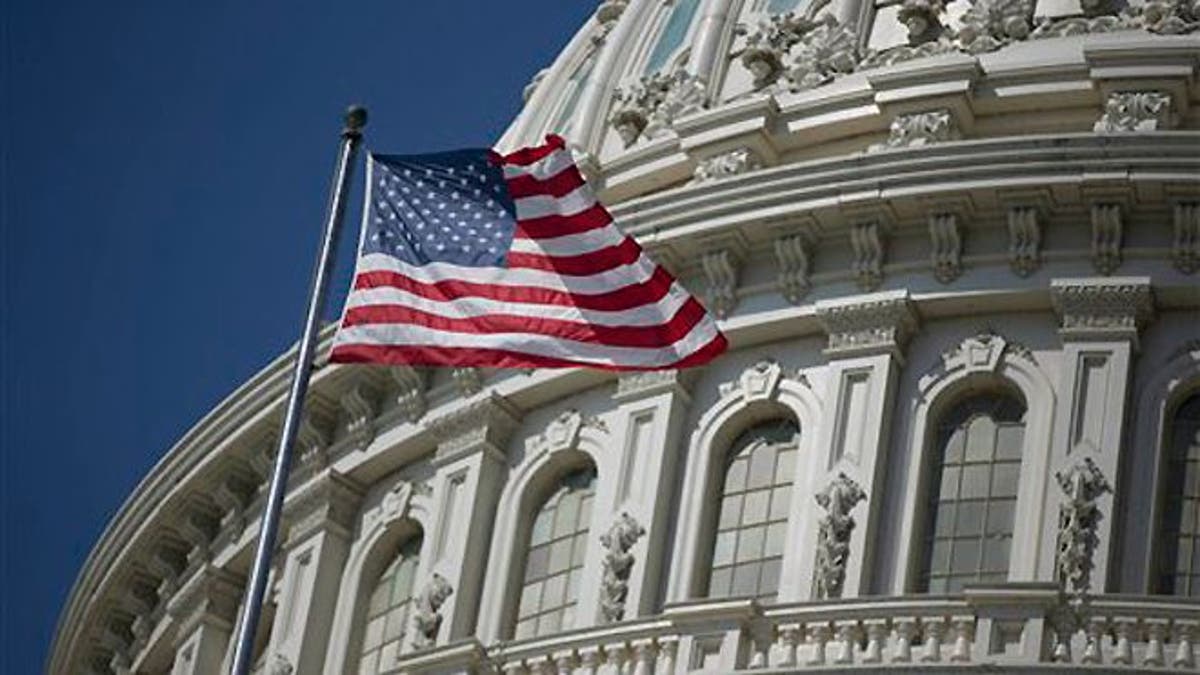
Having led the world in free and open markets for generations, America now faces a choice as simple as it is consequential: lead on trade, or get left behind.
The decision should be clear.
Congress is considering whether to renew Trade Promotion Authority (TPA). TPA is a process between Congress and the administration for negotiating trade deals that has existed in some form for over 80 years. With TPA, Congress has greater influence over trade agreements, and U.S. negotiators hold a stronger position to secure a good deal for American producers, consumers and workers.
Absent TPA, the President has the constitutional power to negotiate trade agreements without Congressional input, transparency requirements or a mechanism to make agreements available for public review. But other countries will not engage in serious negotiations – or offer real concessions – until they know the U.S. is negotiating in good faith.
That is why TPA is essential. It puts Congress – not the administration – in charge of trade negotiation objectives. It sets clear transparency requirements and makes agreements available for public review. And it shows our trading partners that America can be trusted.
If the administration meets the TPA requirements, Congress gets the final say on any trade agreement through a yea-or-nay vote. If the administration fails, Congress has the power to cancel the vote and halt the agreement altogether. TPA ensures transparency and accountability.
But most Democrats are lined-up to oppose TPA and kill America’s golden opportunity to expand free market policies to Asian countries under the growing influence of China. Liberals want to saddle Americans with higher taxes and more trade regulations. It’s no surprise the anti-trade movement is led by organized labor and Massachusetts Senator Elizabeth Warren.
Even a few Republicans are considering joining the left-wing crusade against TPA and free trade. My message to them is simple: don’t take the bait. Every objection is based on misinformation or economic fallacy.
Concerned about secrecy? TPA requires any agreement to be made public at least 60 days before a vote. Concerned about transparency? TPA allows every Members of Congress to read negotiating text and receive briefings at any time. Concerned about Congress ceding authority? “TPA grants no new authority to the President,” confirms the nonpartisan Congressional Research Service.
Apart from these reasons, it’s important to recognize the profound economic and strategic consequences at stake. Trade already is happening. The question is whether Congress will embrace measures to give the U.S. a competitive edge in the world, or allow our country to backslide into disastrous protectionist policies of bygone eras.
Since World War II, no nation has actively promoted an open and stable system for global commerce more than America. Free trade lies at the heart of our country’s post-1945 economic prosperity and global influence.
But nothing was pre-programmed. Time and again, America chose to boldly step up and advance free markets.
Ronald Reagan understood this. He tapped into the “can-do” spirit of America, and called on trade negotiating authority to pursue free trade. “Our commitment to free trade is undiminished,” Reagan said. “We will vigorously pursue our policy of promoting free and open markets in this country and around the world.”
That same challenge exists today – and so should our commitment. If America fails to seize this opportunity, other nations will step in to claim the mantle of economic leadership. Or as Ted Cruz and Paul Ryan, both TPA supporters, put it: Who do you want to write the rules for the global economy in the 21st century – America or China?
It must be America. That’s why Congress should renew TPA and strengthen our nation’s hand in sealing two major trade agreements under discussion. One is a deal with eleven Pacific economies, including allies such as Japan, Australia and Singapore, and the other is with the European Union. Together, these deals would account for 65 percent of global economic output.
The potential gains are immense. Estimates have the deals boosting America’s economy by at least $200 billion. The agreements would cut taxes on trade, dismantle unfair trade practices, and protect intellectual property rights for American workers and firms. Consumers would benefit from greater product choice and lower prices. Leading on trade also pressures other nations to establish their rules toward U.S. standards – not the other way around.
Striking more open markets would be a massive win for our state and local economies. My home state, Texas, has led the country in international trade for 13 years. More than 60 percent of Texas’ exports go to U.S. free trade partners. Exports would only increase with better access to Asian and European markets. That would be a boon for Texan exporters, 93 percent of which are small- and medium-sized businesses.
In Dallas-Fort Worth, the area I represent in Congress, global trade reached a record $72 billion in 2013. That same year DFW’s trade growth was the second-fastest in the nation. And make no mistake: trade brings innovation, growth and well-paying jobs for all of America. One in five American jobs are supported by international trade, jobs that earn on average 13 to 18 percent more than non-trade jobs.
For our nation to grow in the future as it has in the past, America must lead on trade. Plain and simple, TPA is a proven and effective process to advance U.S. national interests. The U.S. has led the free and open international economic system for 70 years. There is no reason to surrender that lead now.
